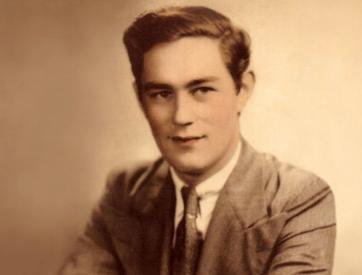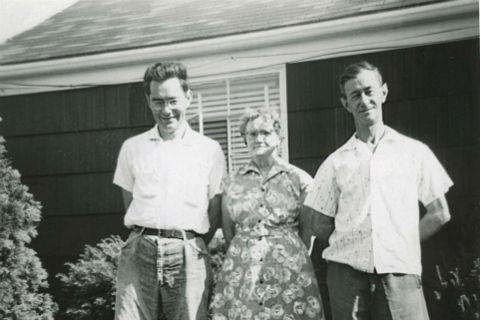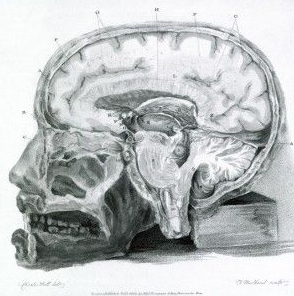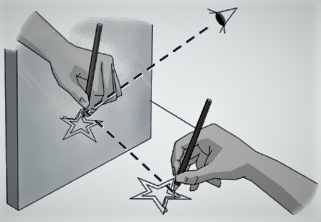On September 1st, 1953 William Scoville, a neurosurgeon that worked at Hartford Hospital in Connecticut, performed an operation where his 27 year old patient lost his memory.
Henry Molaison was a young man who suffered from epilepsy for many years. He had a bicycle accident when he was little and since then he had partial epileptic seizures while growing up. As he grew older the seizures became worst to the point where he was unable to work, therefore, in 1953, he was referred to Dr. Scoville for medical treatment.

Dr. Scoville analyzed Henry’s case and suggested surgery, but it wasn’t a conventional surgery. He believed that if he removed the part of the brain that was causing the epilepsy the seizures would stop. Since Henry was so desperate to find a solution he agreed to the surgery.
The procedure involved removing the hippocampus and adjacent structures, and also the amygdale form both sides of Henry’s brain (where the doctor localized the epilepsy), therefore, he would lose a portion of his temporal lobe. The surgery had to be absolutely precise in order to be successful, but Dr. Scoville didn’t have any of the tools necessary to monitor the process.
Despite that situation, the surgery was a partial success. The primary goal was to control the patient’s epilepsy, and that was accomplished, but after Henry woke up from the surgery he started to suffer from severe amnesia. Although he was able to remember his name and his family, he couldn’t remember events that had happened a few years ago.
Then, Henry Molaison developed anterograde amnesia; this means he lost the ability to commit new events to his memory. Due to this condition he used to forget what day it was and repeated comments several times.
Dr. Scoville contacted another expert in the matter: Wilder Penfield, and informed him about the results. Penfield decided to send Brenda Milner, a Ph. D psychologist student from McGill University in Montreal to study the case. She visited Henry (now popularly known as ‘HM’) at his parents’ house, where she saw him doing strange chores, like watching classical movies for the first time over and over, and repeating several meals in a row.

Although HM wasn’t able to form new memories, he was able to retain information for a couple of minutes, long enough to finish a sentence. At one of tests, Milner gave him a number and he was able to remember it for 15 minutes if he kept repeating the number to himself, but after 5 more minutes he even forgot that the test took place.
The discoveries made by Milner after running series of interviews and tests were an amazing contribution to the study of memory, they even redefined some important concepts. By the time of the operation, people thought that memory functions were not performed on a single place, but spread throughout the brain.
Seeing that HM suffered from a severe amnesia after removing specific parts of his brain, and yet kept his intellectual abilities, it was a clear sign that memory functions depended a lot from the temporal lobe.
Thanks to these studies, we now know memory formation involves several steps and that the hippocampus plays an important role in its consolidation. After we perceive sensory data it is transcribed by our neurons in the cortex of the brain, and then taken to the hippocampus, where proteins work to protect and strengthen that information and if the experience was strong enough for us to recall it for a few days the hippocampus transfers the memory to the cortex again so it’s stored permanently.
This is why HM’s brain could perceive information and form the first impression, but without the hippocampus it wasn’t able to consolidate the memories and therefore they just “vanished”.
Milner performed another test with Henry: she told him to draw a third star in the middle of the outlines of two concentric stars while watching the page and his hands only through a mirror. Of course he didn’t do a good job. But to her surprise, after doing that same task several times in different occasions he actually improved, although he couldn’t remember doing it before.
Milner’s study discovered that our procedural memory, the one in charge of remembering things like how to ride a bike and draw a star, is different from our declarative memory, the one in charge of remembering facts and dates. In fact, the procedural memory is located in brain structures such as the basal ganglia and cerebellum, and these structures were intact is Henry Molaison’s brain.
This proved that HM could learn new motor skills even if he wasn’t conscious of it.
His brain is the most examined mind in history, studied by over 100 neuroscientists. He died on December 2nd, 2008 at the age of 82. After his dead, HM’s brain was scanned, then cut into 2401 slices and finally photographed to form a digital atlas for further studies.
If you’re curious, Dr. Scoville died in 1984 at the age of 78. He didn’t repeat the operation again.



Wow, what a great article! I didn't know of the existence between the declarative and procedual memory.
Upvoted and you've got my follow
Downvoting a post can decrease pending rewards and make it less visible. Common reasons:
Submit
I'm so glad you liked it and learned something from it :D
Downvoting a post can decrease pending rewards and make it less visible. Common reasons:
Submit
Very informative! Upvoted :)
Downvoting a post can decrease pending rewards and make it less visible. Common reasons:
Submit
Thank you for your comment! :)
Downvoting a post can decrease pending rewards and make it less visible. Common reasons:
Submit
Great presentation tonight! ^_^
Downvoting a post can decrease pending rewards and make it less visible. Common reasons:
Submit
Thank you!! :)
Downvoting a post can decrease pending rewards and make it less visible. Common reasons:
Submit
That is really so sad... I have tle (temporal lobe epilepsy) and surgery it´s not recommended but if something like that would happen dunno if I would want to live that way... :( It was a very well written article, it gave me chills, I'm glad I'm born in a more modern time. :(
Downvoting a post can decrease pending rewards and make it less visible. Common reasons:
Submit
Wow! I understand. People, especially doctors, used to try crazy things, like what happened to HM. Thank you so much for reading and for your kind comment. And don't worry! Everything would be just fine <3
Downvoting a post can decrease pending rewards and make it less visible. Common reasons:
Submit
a great writing about the wonders of the brain...so sad to know how this man suffer of losing a part of his brain by trying to control his seizure
Downvoting a post can decrease pending rewards and make it less visible. Common reasons:
Submit
Yes, it was very sad that he had to live like that. Thankfully science developed way better treatments for this condition now! And most of it was thanks to HM's brain. Thank you for reading :)
Downvoting a post can decrease pending rewards and make it less visible. Common reasons:
Submit
That was a nice read! Thx for this huge amount of info on memory ☺
Downvoting a post can decrease pending rewards and make it less visible. Common reasons:
Submit
Your Post Has Been Featured on @Resteemable!
Feature any Steemit post using resteemit.com!
How It Works:
1. Take Any Steemit URL
2. Erase
https://3. Type
reGet Featured Instantly & Featured Posts are voted every 2.4hrs
Join the Curation Team Here | Vote Resteemable for Witness
Downvoting a post can decrease pending rewards and make it less visible. Common reasons:
Submit
No logré oír tu presentación durante la curación del jueves en whaleshare porque al inicio mi conexión estaba fallando, pero ahora lo leí y en verdad me parece muy interesante aunque un poco triste. Pero la historia es así, muchas personas han tenido que sufrir para lograr los avances en la ciencia. Saludos.
Downvoting a post can decrease pending rewards and make it less visible. Common reasons:
Submit
I read your article and my interesting one, the story is sad but thanks to these studies, progress was made in neurosurgery.
Downvoting a post can decrease pending rewards and make it less visible. Common reasons:
Submit